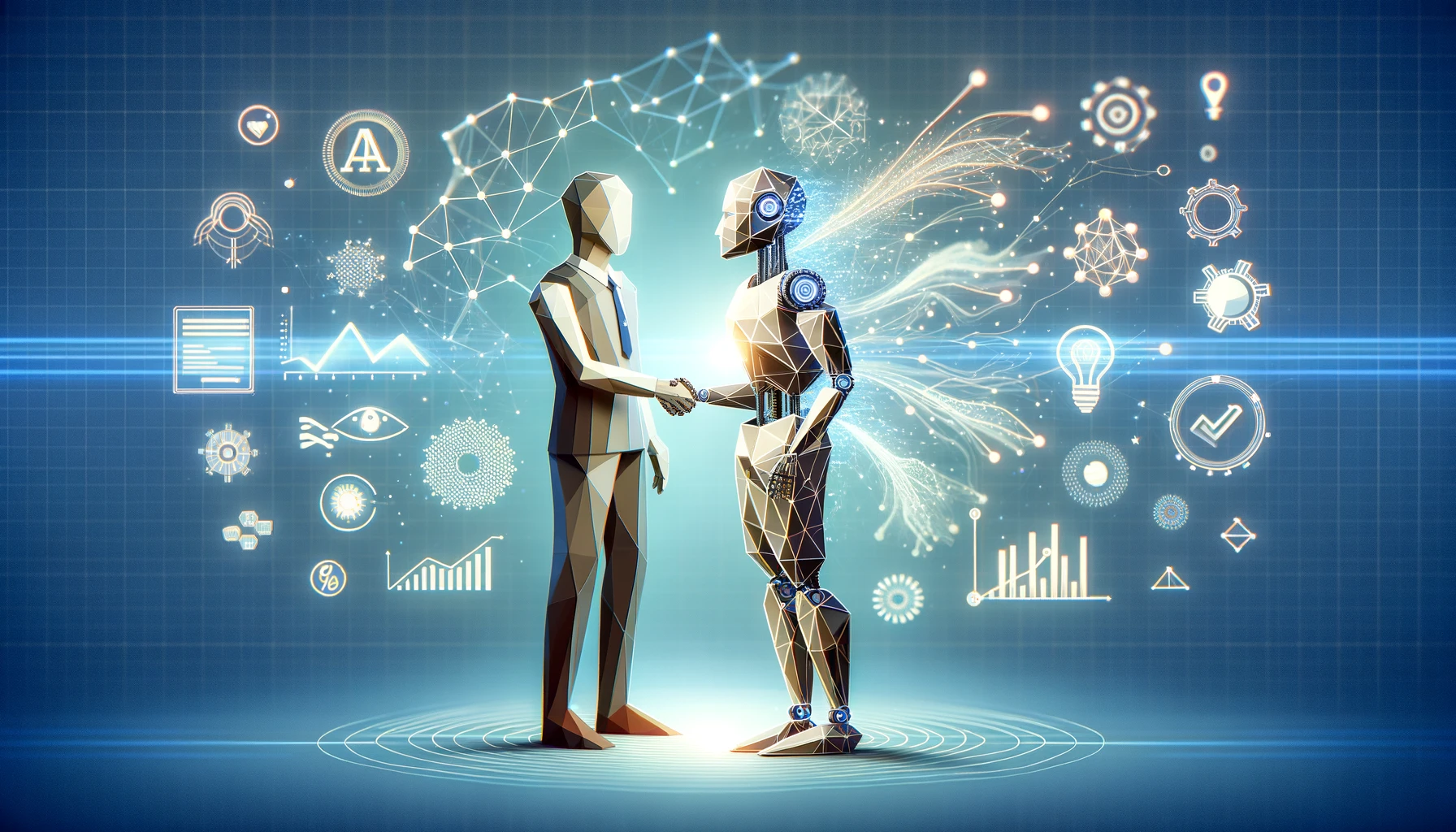Office Address
DSB 267 FF, OPPOSITE AGGARSAIN BHAWAN HISAR 125001
Phone Number
+91 90344-38894
+91 81681 - 38304
DSB 267 FF, OPPOSITE AGGARSAIN BHAWAN HISAR 125001
+91 90344-38894
+91 81681 - 38304

Artificial Intelligence (AI) in digital marketing has evolved from a fantastical notion to a game-changer for today's marketers. It's become a powerful technology to drive personalization, predictive analytics, customer experiences, and much more. That’s why marketing leaders are implementing AI-driven initiatives in their marketing strategies, with many believing the technology will have a ‘big impact’ on productivity.
Artificial intelligence in digital marketing uses the capabilities of the technology, such as data collection, natural language processing, machine learning, and analytics, to drive better business insights, and automate marketing tasks and decisions. The advantage of AI is that it will help you gain insights into customer behaviors at speed by harvesting vast amounts of data.

While ChatGPT may be the most talked-about generative AI tool, there are so many more out there that are helping marketers in their daily roles. They can help marketers in a variety of functions, from content generation to automation to SEO and design.
Here are some of the best AI tools out there:
Writer - A highly-rated content generation tool that can repurpose content and includes an AI writing assistant
Midjourney - Generative AI that can convert natural language prompts into images
Optimove - A customer data platform with AI-based marketing functions
Zapier - Helps automate workflows by connecting apps and services that your company uses
Manychat - Provides an interactive customer experience using NLP to respond to customers on social platforms including WhatsApp
Evolv.ai - Uses AI and machine learning algorithms to improve customer experiences in real-time
Surfer SEO - A cloud-based on-page optimization tool that analyzes and compares your pages against what currently ranks on the SERPs
Mailchimp - Uses AI to optimize email campaigns by predicting the best send times and personalizing content
Perplexity - Similar to ChatGPT but more suitable for research as it uses web citations in a clearer way
Drift - An AI chatbot that enhances lead generation and customer interaction
As AI technologies have become more accessible and easier to use, companies have started to use them in daily tasks such as creating content for pay-per-click (PPC) ads or setting up triggered email workflows.
When we asked our membership community at the Digital Marketing Institute about AI, 60% believe they are familiar with the technology and its applications in marketing but 37% don’t currently have an AI strategy in their business.
Marketing teams are often under pressure to create content quickly for many purposes and channels. However, creating good content takes time and effort, and a lot of marketers are time- and resource-poor.
AI-driven chatbots have been around for a while as a way to communicate with and provide information to customers. When people want to get instant answers to simple queries or interact with a brand, they first go to a chatbot.
Customer segmentation and targeting help you identify and influence your most valuable customers. However, doing this manually can be time-consuming and costly. AI can use algorithms to segment your prospects and customers into groups or segments of people with similar interests, needs, or behaviors.
Artificial intelligence has huge potential in the area of search engine optimization (SEO). Search engines such as Google have been using sophisticated algorithms that crawl and index web pages to rank them.
Pay-per-click (PPC) advertising is a form of advertising where you pay when someone clicks your ad. As a strategy, PPC marketingis important as it can attract new customers through targeted campaigns, get quick results, and be easily tweaked and optimized.
Artificial intelligence can process vast volumes of data at speed. This can help marketers gain insights from data, along with using historical data to predict trends and behaviors. ChatGPT has excellent data analysis capabilities, especially if you use its Advanced Data Analysis plugin. This enables you to feed a spreadsheet to ChatGPT, and it then helps you to unearth deep insights above the data in your spreadsheet.
Ultimately it’s about using AI technology in data analysis to drive better business insights a way that works for you.
Email marketing is an important part of any marketing strategy as it continues to be an effective way to convert prospects and engage customers. Using AI tools in your email marketing can save you time and improve performance.

The key to using AI technology effectively is to make it fit in with your role. It's not enough to know how to use artificial intelligence. You also need to know why you're using it.
For example, does it align with your business and career goals? Will it help you deliver organizational objectives more efficiently? Is it saving you time rather than just creating more tasks?
You need to understand the basics but also take a deep dive into AI to use it to meet your goals, whether that be generating and nurturing leads or improving customer service.
We know that artificial intelligence can be daunting, and it’s difficult to see where and how it fits into your role. But it shouldn’t be seen as a threat. Understanding and mastering AI will also give you a personal boost. You will gain new skills and real-life experience in a generative technology that’s going to become more widespread and an area that companies look for to recruit or promote.